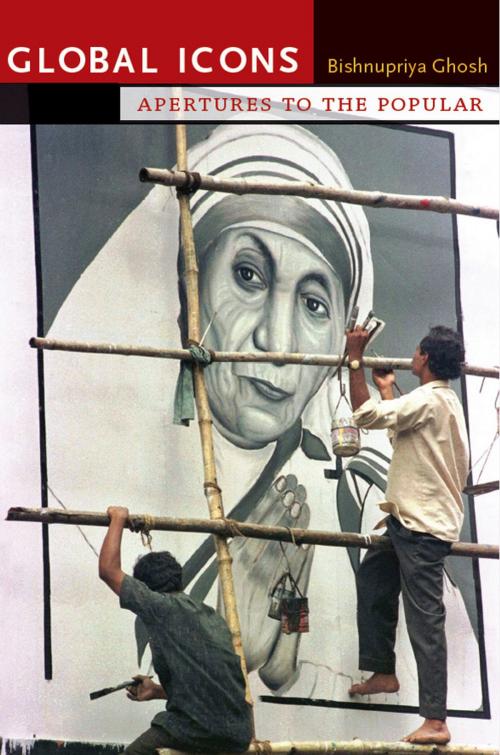Global Icons
Apertures to the Popular
Nonfiction, History, Asian, India, Social & Cultural Studies, Social Science, Gender Studies, Women&| Author: | Bishnupriya Ghosh | ISBN: | 9780822394242 |
| Publisher: | Duke University Press | Publication: | August 24, 2011 |
| Imprint: | Duke University Press Books | Language: | English |
| Author: | Bishnupriya Ghosh |
| ISBN: | 9780822394242 |
| Publisher: | Duke University Press |
| Publication: | August 24, 2011 |
| Imprint: | Duke University Press Books |
| Language: | English |
A widely disseminated photograph of Phoolan Devi, India’s famous bandit queen, surrendering to police forces in 1983 became an emotional touchstone for Indians who saw the outlaw as a lower-caste folk hero. That affective response was reignited in 1994 with the release of a feature film based on Phoolan Devi’s life. Despite charges of murder, arson, and looting pending against her, the bandit queen was elected to India’s parliament in 1996. Bishnupriya Ghosh considers Phoolan Devi, as well as Mother Teresa and Arundhati Roy, the prize winning author turned environmental activist, to be global icons: highly visible public figures capable of galvanizing intense affect and sometimes even catalyzing social change. Ghosh develops a materialist theory of global iconicity, taking into account the emotional and sensory responses that these iconic figures elicit, the globalized mass media through which their images and life stories travel, and the multiple modernities within which they are interpreted. The collective aspirations embodied in figures such as Barack Obama, Eva Perón, and Princess Diana show that Ghosh’s theory applies not just in South Asia but around the world.
A widely disseminated photograph of Phoolan Devi, India’s famous bandit queen, surrendering to police forces in 1983 became an emotional touchstone for Indians who saw the outlaw as a lower-caste folk hero. That affective response was reignited in 1994 with the release of a feature film based on Phoolan Devi’s life. Despite charges of murder, arson, and looting pending against her, the bandit queen was elected to India’s parliament in 1996. Bishnupriya Ghosh considers Phoolan Devi, as well as Mother Teresa and Arundhati Roy, the prize winning author turned environmental activist, to be global icons: highly visible public figures capable of galvanizing intense affect and sometimes even catalyzing social change. Ghosh develops a materialist theory of global iconicity, taking into account the emotional and sensory responses that these iconic figures elicit, the globalized mass media through which their images and life stories travel, and the multiple modernities within which they are interpreted. The collective aspirations embodied in figures such as Barack Obama, Eva Perón, and Princess Diana show that Ghosh’s theory applies not just in South Asia but around the world.















